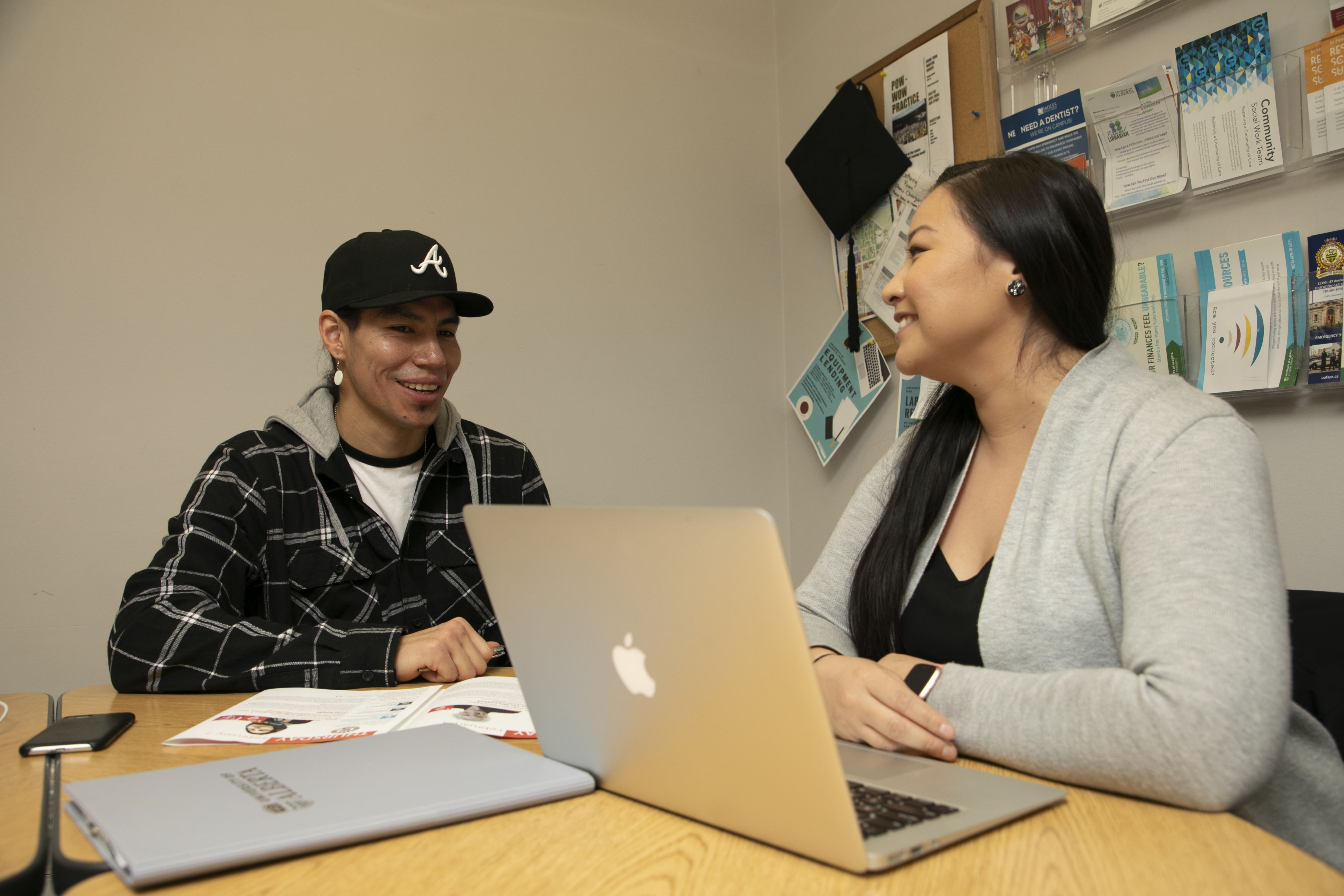Second-ever Indigenous Student Success Survey asks First Nations, Inuit and Metis students for feedback
Jordan Mae Cook - 12 February 2021

(Photo by Bert Crowfoot, 2019)
Indigenous students at the University of Alberta are getting the opportunity to directly provide feedback to the institution, providing insight into their experiences at the University to help guide the direction of the university going forward.
The Indigenous Student Success Survey will run from February 3 to 26, asking students their experiences on U of A campuses with everything from the services they access to the barriers they face, to inclusion of Indigenous worldviews and perspectives in their classes.
“I think it’s really important for students to participate and contribute to [the survey] because it’s the way their voice is going to be represented,” said Dr. Florence Glanfield, vice-provost of Indigenous programming and research. “And it’s the opportunity for every voice, not just the individuals who are involved in a particular student group, but for every Indigenous student to participate.”
Strategic impact
This will be the second iteration of the survey. The first was conducted in 2014, and a 2015 report and recommendations were created from the data collected.
“The survey report and the final report of the Truth and Reconciliation Commission came out in approximately the same year, when we were also working on For the Public Good at the same time. So out of that, the recommendations from the survey informed the institutional strategic plan,” said Glanfield.
A specific impact of the original survey was the creation of new positions at the U of A, including the vice-provost of Indigenous programming and research, the assistant dean of First Nations, Metis and Inuit students, a Student Wellness Worker within First Peoples’ House, and a dedicated Indigenous recruitment position in the Registrar’s Office.
In these kinds of ways, the students’ data informs the work of the institutional strategic plan, said Glanfield.
“This time, we’re beginning to develop an institutional Indigenous strategic plan. So student responses to this survey will help to frame the Indigenous strategic plan and help us to develop priorities,” said Glanfield.
Invaluable for academic advocacy
David Draper, VP Academic for the University of Alberta Students’ Union, said that having good data is fundamental, so that the U of A can know how challenges impact Indigenous students' educational experience, and work to improve it.
“This information is going to be invaluable for academic advocacy. As [the UASU] talks with Aboriginal Student Council, we'll bring the key issues right to the Deans and administrators who can make whatever change needs to be made,” said Draper.
The idea to survey Indigenous students began with an acknowledgement that university administration and professors didn’t know the student experience, said Dr. Nathalie Kermoal, professor and associate dean academic of the Faculty of Native Studies, who led the creation of the first survey and is co-creator of the current one.
“You don’t know until you ask, and that’s why 6 years ago I started with that, because if we don’t know, we miss something,” said Kermoal.
The current survey has many similar questions to the earlier one, but it also takes up other issues that students are facing in 2021, including asking about their experiences of racism, homophobia, and sexism on U of A campuses, Kermoal and Glanfield said.
Listening to the student voice
The process for creating the survey, though steered by Kermoal and Glanfield and including a number of groups on campus, was led by the students themselves, in particular the University of Alberta Students’ Union, along with the Aboriginal Student Council, Graduate Students Association, and the Indigenous Graduate Students Association.
“The student voice was really big in it, and we want to privilege that because this is the Students’ Success Survey. They were really engaged, and our focus was on having them involved,” said Glanfield.
Despite the challenges posed by COVID-19 and working from home, Glanfield, Kermoal, grad student Megan Parrish, student groups, and units across campus all worked together for almost a year to create a thorough and clear survey, with the intention of better understanding the student experience at the U of A.
“To me strategizing is not just about higher administration. By listening to what students have to say, we can learn what we need to develop, where we need to improve,” said Kermoal.
“If we say the U of A is the university for tomorrow, well what does that mean? If we want to remain the university of choice for Indigenous people, what do we need to do?”
If you're a self-identified Indigenous student, you should find an invite to participate in your inbox from February 3. The survey will remain open until February 26. Reminder emails will arrive in inboxes February 11 and 22.